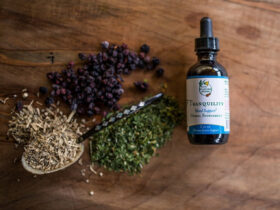Gastroesophageal reflux disease, or GERD, is currently the most common digestive health condition that people experience in the United Kingdom. Today, roughly 1% of the UK’s population suffers from this reflux disease. One good thing about this health condition is that it’s not life-threatening in itself. However, if care isn’t taken quickly (using the proper acid reflux medication), long-term gastroesophageal reflux disease can always result in more severe health issues, which can be life-threatening.
This brings us to the question; are there any effective treatment options, including medication for acid reflux (UK)? Read on to find answers to this question and other GERD-related questions.
What is GERD?
Gastroesophageal reflux disease, also known as chronic acid reflux, is a common digestive disorder that mostly affects the muscle ring between your oesophagus and stomach. This health condition surfaces when this ring of muscle, also known as the lower oesophagus sphincter (LES), gets infected with acid-containing stomach contents.
Both gastroesophageal and reflux have their meaning. If you don’t know, “gastroesophageal” refers to both the stomach and oesophagus. “Reflux,” on the other hand, is an English term that means “to flow back.” By bringing these terms together, you’ll find that gastroesophageal reflux means your stomach content moves back up to the oesophagus.
Acid reflux (heartburn) is natural, and mostly everyone experiences it occasionally at some point in their lives. However, when you start experiencing this condition more than twice weekly for several weeks, you need to take heartburn tablets or antacids. If, after taking your medications, you still experience recurrent symptoms of acid reflux, it’s safe to say that you have GERD. In this case, you need to visit your healthcare provider to diagnose you and handle everything that relates to chronic acid reflux to avoid complications.
What exactly are the GERD symptoms?
The most common symptoms of GERD are acid regurgitation and recurrent acid indigestion (heartburn). When this recurrent heartburn occurs, you’ll feel slightly burning chest pain, which could last up to 2 hours. This burning chest pain usually begins behind your breastbone before moving upward to the throat. Yes, this experience often feels like food is moving back from your stomach to your mouth, leaving you with a bitter taste.
It’s worth knowing that some people also experience GERD without heartburn. In this case, the GERD sufferer may experience the following symptoms:
- Nausea and vomiting
- Bad breath
- Experiencing a lump in your throat
- Breathing difficulty
- Swallowing issue
- Tooth enamel wear

Can GERD be treated?
The good news is that there are a few reliable treatment options for GERD. To find the best treatment for yourself, you might need to test the available options below:
1. Lifestyle modifications
Lifestyle modifications, often advised by doctors, are an effective treatment option for lessening your symptoms of GERD. This option involves changing your way of living to lessen GERD symptoms.
- These modifications include staying away from food and beverage triggers. For instance, chocolate is a food trigger that can relax your lower oesophagus sphincter and cause GERD issues.
- Other GERD lifestyle modifications require you to focus only on eating smaller serving meals and staying away from eating faster.
Giving up smoking, shedding weight (for healthy purposes), wearing loose clothes, and avoiding caffeine can also help.
2. Acid reflux medication
GERD symptoms can also be treated with the right acid reflux medications, such as antacids and proton pump inhibitors (PPIs). An excellent example of an effective medicine you can rely on is Omeprazole. H2 blockers are also known to be very effective medications.
The only problem with gastroesophageal reflux medications, such as PPIs, is that it’s not safe to use them for a longer period. Their long-term use can result in other deadly diseases, such as gastric cancer.
3. Surgery
No doubt, GERD sufferers can always take acid reflux tablets, such as “the purple pill,” to address the various GERD symptoms they may be experiencing. The only issue is that these purple pills can increase your risk of experiencing oesophagus cancer.
While these medicines can reduce or stop the production of stomach acid, they are less effective for stopping stomach acid, which also contains bile, from moving back up into the oesophagus. Too much use of antacids and other PPIs will stop the production of stomach acid, leaving only too much concentration of bile to move back into the oesophagus. This is even more dangerous than having stomach acids in the oesophagus.
To avoid complications, patients are only advised to use PPIs for six weeks yearly. Another acid reflux medication alternative involves relying on less invasive surgery. With successful surgery, patients will get to avoid continuous and long-term usage of PPIs. This surgery works based on a technique known as Nissen fundoplication. This technique involves wrapping the upper portion of the stomach around the lower oesophagus. This helps to strengthen your LES and prevent chronic acid reflux.













